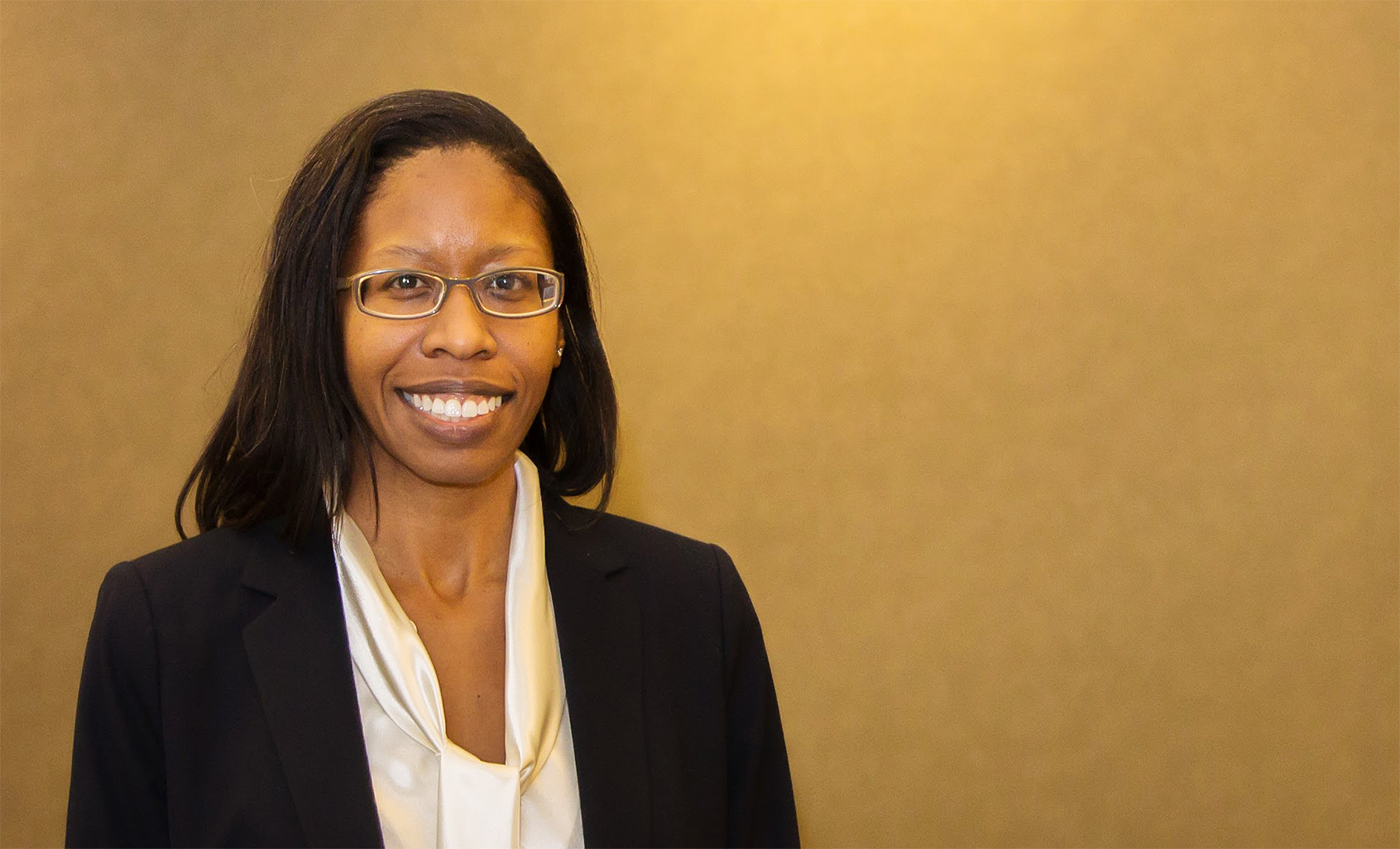“It’s been an amazing learning experience,” Tina Saunders said looking back on the first seven months in her new role as Director of the Law Program at Temple University, Japan Campus (TUJ). Saunders first joined TUJ as an adjunct professor in 2013, teaching law classes in civil procedure and torts. In January 2016, she accepted her appointment as Director and Associate Professor of Instruction in Law.
—How has it been since your new start?
In many ways, I am seeing the law program from a different vantage point from when I was solely teaching classes here. As a professor, my focus was on refining students’ expertise in U.S. law and providing practical training to help students become global leaders as legal practitioners. Now, it’s important for me to understand every facet of the program, particularly entering into this new role as director in a well-established program that has such a long and rich history here in Japan. I felt it critically necessary to spend time meeting with faculty, staff and long standing supporters of the program, like alumni and members of the local legal community. Through my interactions, I have gained a much greater understanding and appreciation for the program’s strengths and also the areas in which we need to improve to become a leading law program not only in Japan but internationally.
I am highly motivated and energized by the overwhelming support I’ve received since my start. As a matter of fact, it’s been a ‘nice surprise’ to meet so many new people who are enthusiastic about the program and want to share their ideas. I have spent a lot of time engaged in this process of learning, and thinking creatively and strategically about the future direction of TUJ Law.
I’m grateful to have the space to begin formulating actionable ideas on the curriculum, student services, alumni outreach, and strengthening ties with the local community. I am an ardent believer in the future of the Law Program as we look toward reinforcing the program’s core values and striving to be a leader in international legal education.
—Would you tell us about your background?
I spent my university days in Washington D.C. studying political science and business administration at Howard University. Being on my own for the first time in the vibrant U.S. capital, I learned about the intersection between law, business, and politics through my studies and by working in the city. Following school, I worked as a trial clerk at the U.S. Tax Court. It was a unique position that allowed me to travel to cities in more than 35 states hearing cases about federal tax law. Inspired by my experience, I decided to attend law school at the University of Maryland Carey School of Law in Baltimore, Maryland. I had a strong interest in becoming a trial lawyer, so I became a member of the mock trial team and served as editor-in-chief of the law journal on race, religion, gender and class.
After obtaining my law degree, I spent a year as a law clerk for Judge Lynne Battaglia at the Maryland Court of Appeals. My experience there really helped to shape me as a lawyer because I was fortunate to work for one of the most influential female judges in Maryland who taught me the value of viewing my life more broadly, beyond just my present circumstances, and always pursuing strong advocacy in the law. After clerking, I moved on to working at the law firm Venable LLP, focusing on complex civil litigation and products liability cases. I also dedicated significant time to doing pro bono work.
Thinking back fondly on my experiences traveling domestically for work and abroad for leisure, I decided to take a break from practicing law and to spend time seeing parts of the world that I had not been to before. I always wanted to see Japan, so I came here in 2011 and traveled all over the country and neighboring countries, which turned out to be one of the most life-changing experiences for me. Soaking up the culture and daily life in Japan had such a big impact on me and forced me to think about making my life ‘simpler’ and focusing on a different way of legal advocacy-teaching law.
I became an adjunct professor at TUJ Law, developing great relationships with the students, as well as the program’s previous director and the staff. This was the beginning of my story of how I went from practicing law into the world of academia. Japan truly has brought this major change to my life both personally and professionally for which I will be forever indebted.
—Would you tell us some of your achievements in your new role here?
I am amazed at how smooth the transition has been with the staff; in particular, I appreciate their patience, willingness to share their institutional knowledge, and for being so open to new ideas. So I view the transition itself as an accomplishment.
We were also proud to welcome our J.D. students to TUJ Law’s spring semester abroad program, which brought together students from the U.S. with LL.M. students from Japan and other countries in a collaborative learning environment.
We decided to expand on a student services initiative that began as a pilot class last fall, the ‘bar exam workshop.’ We introduced the workshop to help eligible students studying to take a U.S. state bar exam to become a U.S. licensed attorney. It’s no secret that bar exam passage rates have been falling for the past couple of years. We thought it imperative to offer a course on exam-taking strategies and methods to give our students the best chance for success on the exam. We received such positive feedback from the participants that we decided to roll out the workshop as a full course offering beginning in the fall 2016 semester.
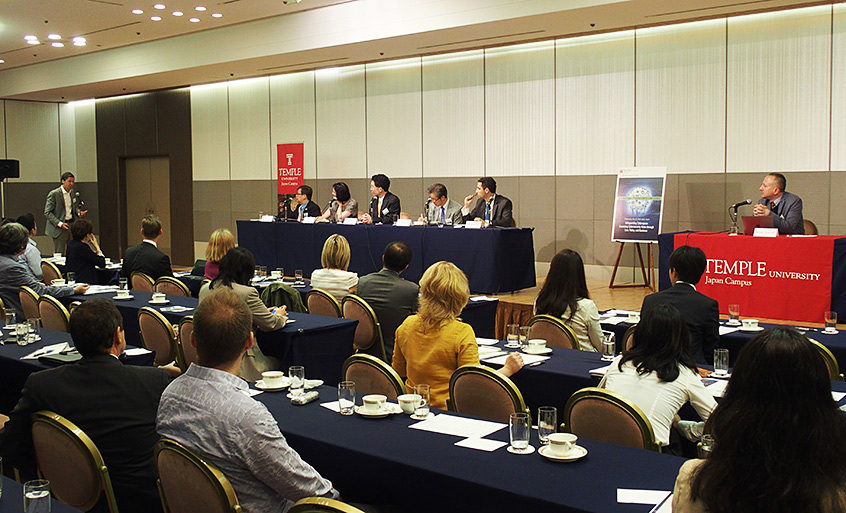
One of the true highlights of the past six months for the law program is that we hosted an International Cybersecurity Conference on May 25. The conference focused on the issue of who should bear responsibility for the cybersecurity issues currently affecting our communities globally. As an institution of international higher education, we felt that we were in a great position to create a forum for open dialogue among policymakers, academics and industry stakeholders to explore the global community’s challenges in handling cybersecurity.
We were fortunate to have such strong participation from senior public and private officials to discuss these issues, including the Assistant Secretary for cyber policy at the U.S. Department of Homeland Security, Microsoft’s Director of Cybersecurity Policy and Strategy, and a senior advisor to the Japan government, among many others. The participants represented a diverse, international community coming from the government, business, legal, and academic sectors. Through the conference, we were able to engage in meaningful discussions on cybersecurity that will set the stage for us to put on similar conferences of this magnitude or greater in the future.
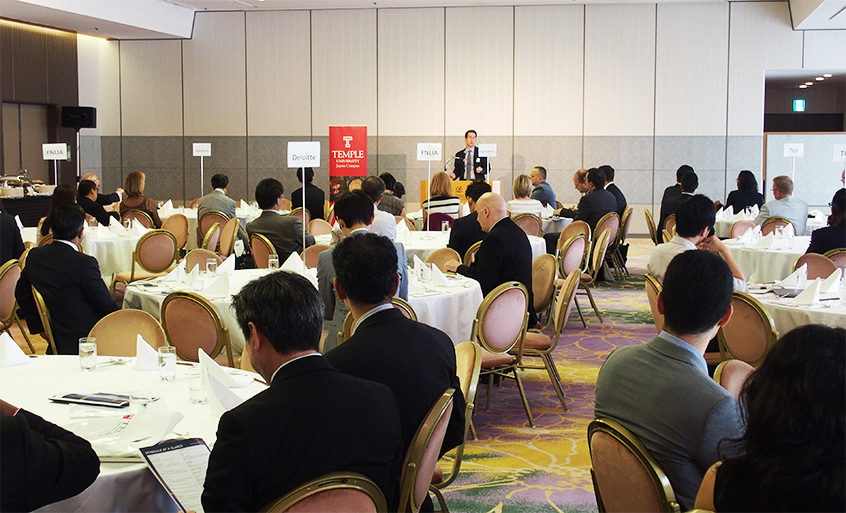
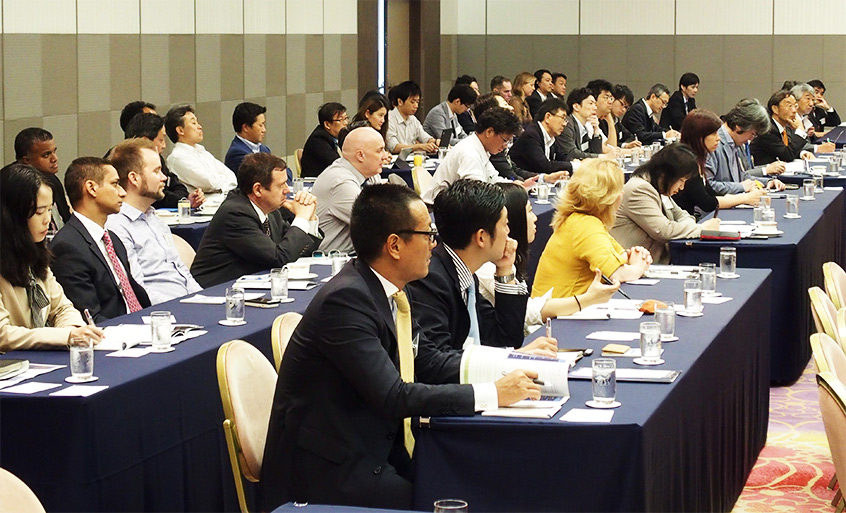
—What would you like to do in the next six months? And would you share your mid- to long-term goals?
Looking ahead, I think it is crucial for us as providers of international legal education to focus on giving students practical legal training that will enable them to be successful, contributing members of our society. TUJ Law is a wonderful program that is in a unique position to serve as a ‘gateway’ to globalized education for students and legal practitioners alike. We want to build on the program’s strengths by continuing to offer real-world legal training from an international perspective to our students.
We are developing ways to improve the quality of the education our students are receiving so that they are prepared to go out into the world and practice law, which will include curriculum enhancements geared toward international business law. An essential part of education is the opportunity for students to gain hands-on legal work experience. To that end, we are increasing our efforts to collaborate with law firms, businesses, and NGO’s to offer internships to our students.
Another focus area for us is career counseling for our students and alumni. As a part of this effort, we plan to introduce our Global Lawyers and Business Executive Lecture Series, in which top-notch lawyers and senior business executives give talks and concrete advice to our students and alumni on practicing law and doing business internationally.
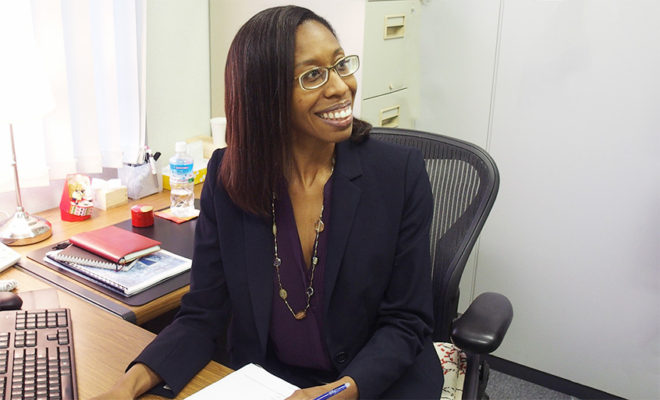
In the long-term, we’d like to increase student awareness of the importance and value of studying abroad. Every person should spend time experiencing other cultures, challenging their own way of thinking by being exposed to people from diverse backgrounds, and being engaged as global citizens. TUJ and our law program are responsible for helping students ‘be global.’
Overall, it’s been a great six months on the new job. I feel honored to be part of the TU family and look forward to doing my part to make the program even stronger, and to ensure that it thrives well into the future.

